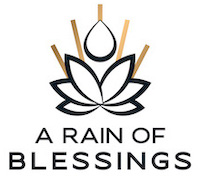David versus Goliath

Rob and I recently finished watching the first season of one of the best shows we’ve seen in a while: The House of David.
The story got me thinking about the spiritual teaching it contains. It also struck me forcefully, and in hindsight obviously, how David’s confrontation with Goliath is similar to Arjuna’s confrontation with the Kauravas. Both David and Arjuna face situations of unavoidable necessity that nevertheless they choose to enter.
These stories are timeless and invaluable, since we also face our own giants, battles, and impossible odds, and must choose, though we are compelled, to respond. We take heart from the stories of heroes.
Back to David. David starts out his life as a shepherd and a social outcast. But David’s supreme qualities of faith, courage, devotion, determination, caring, and obedience have nothing to do with social status. In fact, social status generally has nothing of substance to offer. The burden of high social status can be an unfortunate distraction and a waste of precious time.
But here’s the thing about David that’s got the real nugget of hidden wisdom within. David is “nobody” without Goliath. It’s facing Goliath that makes David who he becomes, despite the fact that David’s sterling qualities do not, in principle, depend for proof on Goliath’s existence.
How do we remember David, archetypally? We remember him as killing Goliath with one stone of his sling. If you’ve ever seen the statue of David in Firenze’s most famous piazza, you will remember that he is depicted with kouros-like beauty and strength and holding his sling.
The intrinsic connection between David and his sling—that much is clear. Watching the dramatization of his story, however, uncovered some implicit facets of that connection that were eye-opening and worth pondering.
So, how the heck did David kill Goliath? The answer is simple and holds a precious teaching.
The years that David was a “nobody shepherd,” and a bastard to boot, were not only passed in taking loving care of his sheep and singing hymns to God.
He was also practicing his sling.
He was practicing his sling day in and day out, month in and month out, year in and year out, rain or shine, with unremitting diligence, persistence, and focus. The elevated qualities of character he already possessed alchemized into single-pointed sling shooting.
David practiced his sling until he could wield it, without any doubt in his mind, at his aim. It was not a sling shot that killed Goliath. It was David’s will, forged in the cauldron of dedicated practice. Will is an exceptionally high human attainment and one that requires work. The fact that the word “power” has been coupled to the word “will” (“will power”) is really misleading. Will is not about power, but about something much more valuable and far more humbling. Will is about capacity, about confidence, to attain whatever one sets out to attain. That’s why I’m saying that it was David’s will (and not his technique or his good luck) that killed Goliath.
Practicing an art, every day for as long as one is capable, an art that is universally valuable and profound, builds the will. Every spiritual tradition knows this. The will is about nothing so crass as tightening one’s fists, clenching one’s jaw, and pushing through something. The will is not about outer force but about inner unity—that is, the overcoming of all internal conflict or division. Attaining will is coextensive with conquering doubt, a most difficult achievement for a human being. We work toward that achievement when we devote ourselves to a practice: whether it’s sling shooting, or archery, or the divine choice of the eight limbs of hatha yoga.


0 comments
Leave a comment
Please log in or register to post a comment